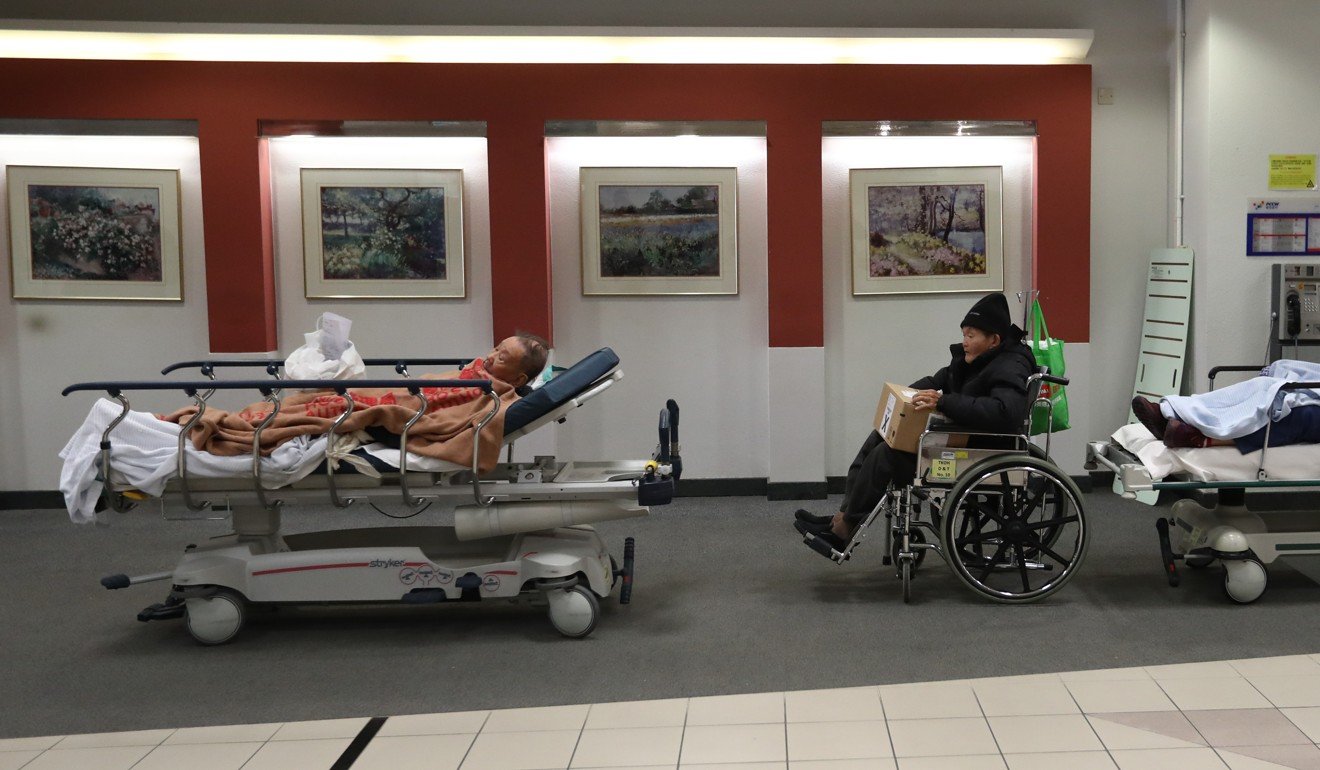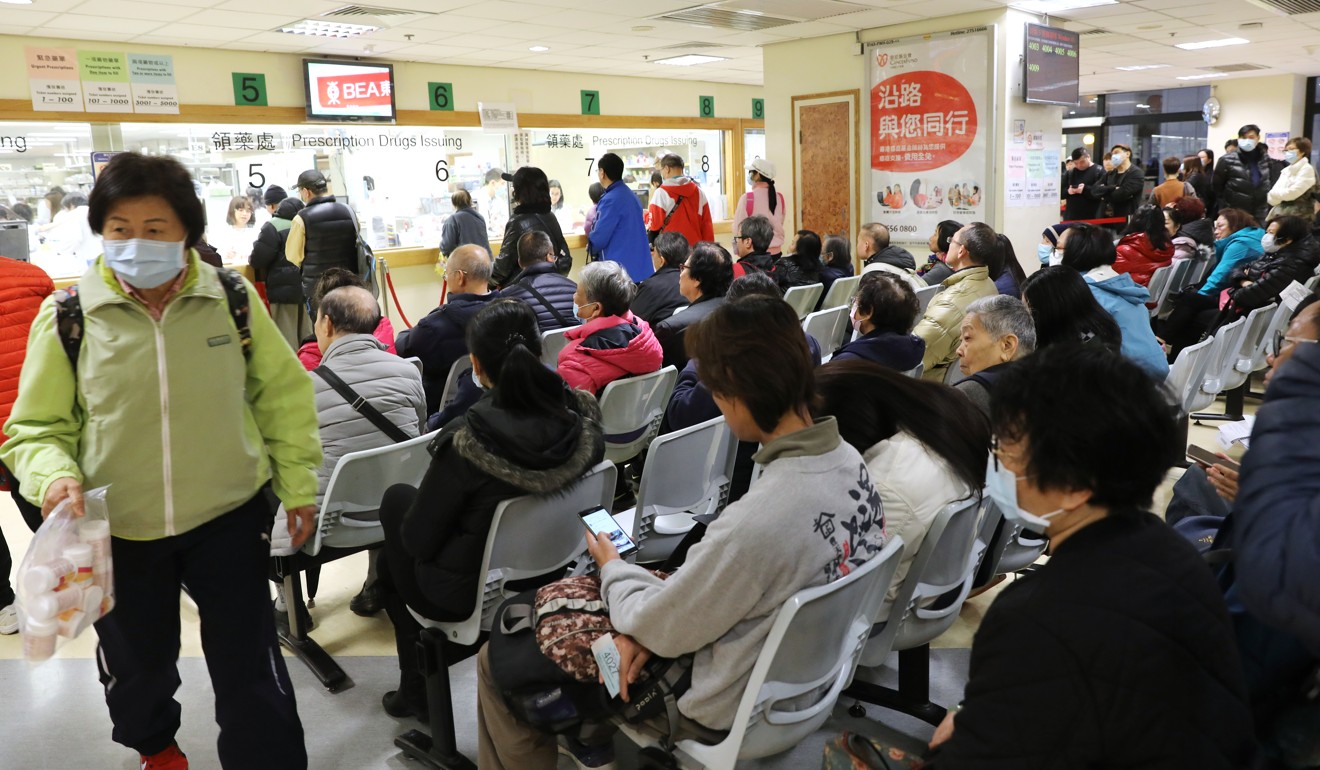
Five ways to improve your hospital stay – and help health-care workers help you
No one likes a prolonged stay in hospital, especially if there is a shortage of doctors and nurses and you’re staying in a cramped, noisy ward. But there are ways to make the whole process easier – and the staff will thank you, too
Falling sick or getting injured and having to be admitted to hospital is never something to look forward to.
While Hong Kong’s public hospital system provides comprehensive services at affordable rates, patients often face long waiting hours in cramped wards with little privacy. A chronic shortage of medical staff and facilities can also leave patients feeling overlooked and overwhelmed as they give up control over their daily existence.
Young Hong Kong pharmacists on a mission to demystify drugs
Patients have a role to play in helping health-care workers treat them. Here are five ways to make a hospital stay more pleasant, and perhaps even speed up recovery.
Take medication as prescribed – and know what you have taken
While most people want to follow doctors’ orders, many are forgetful or negligent about taking prescriptions on time and in the right dose.
It is important to know which medicines you have ingested, and to be able to give the doctor details concerning the name and dose. If a patient has an allergic reaction while on medication, the drug can be identified and the class of drug can be avoided in the future.

When a patient takes medicines from sources outside hospitals, it makes it difficult for doctors to know best what to prescribe.
“They have a stomach medicine from a friend, a herbal remedy from an aunt, a prescription from a GP [general practitioner] and something they chose in Watsons – but don’t even know the name of any of them,” says a resident doctor at Tuen Mun Hospital, who declined to be named.
Have a sense of agency over your health
Understanding their treatment is critical to patients feeling that they are primarily responsible for their own health.
“No one else, not your doctor, nor the government, can claim to be fully responsible for your health,” the resident says.
This means patients should make informed decisions based on a good understanding of their physical conditions, what is ailing them, the medications they are prescribed, and the treatment options they have.
Patience and consideration will help to build trust between the patients and the health-care workers
While doctors do their job by advising patients on the available treatments and the risks and benefits involved, patients must be honest about their situation and not give misinformation or withhold important facts.
Show patience and consideration towards health-care workers
Hong Kong’s public hospitals were short almost 300 doctors and 1,500 nurses in 2016, according to a government study last year.
The city’s biggest nurses group, the Association of Hong Kong Nursing Staff, ran a full-page newspaper advertisement in January at the height of the winter flu season to urge the government to allocate more resources to overburdened hospitals.
Heart surgery at Hong Kong’s Eastern Hospital revealed medical staff’s grace under pressure
When there are not enough helping hands, patients naturally complain and may even verbally abuse overworked staff – driving a rift between them.
“Because of the manpower shortage, we may not be doing well in terms of providing assurance, empathy and responsiveness,” says Deborah Ho, a research nurse at the University of Hong Kong with 20 years of work experience.

The most helpful patients are those who have an understanding of nurses’ heavy workload and are willing to wait patiently, Ho says. “Patience and consideration will help to build trust between the patients and the health-care workers, even in difficult situations when the workload is heavy,” she adds. “The nurses will be able to attend to patients smoothly.”
She cites the example of an elderly lady who was in her care. “Her children lived abroad and we built an excellent rapport with the patient and her children. We communicated with her children via emails to keep them updated about her health status.”
My best encounter was with a paralysed patient who remembered my birthday and drew a card for me using her wrist [because she could not hold a pen in her fingers]
A little kindness can lift medics’ spirits and productivity, especially when some doctors regularly work 24 hours straight.
A resident in the department of orthopaedics and traumatology at Queen Mary Hospital, who wished to remain anonymous, recalls two cases on opposite extremes.
“My best encounter was with a paralysed patient who remembered my birthday and drew a card for me using her wrist [because she could not hold a pen in her fingers],” he says.
“My worst was with a belligerent patient who threatened to report us for not being able to book an MRI within a few days, when his medical condition clearly did not warrant it, which would mean we would have had to cut ahead of much more urgent cases.”
Follow visiting rules
Hospital wards have different visiting hours and limits on the number of visitors each patient is allowed. Some also have restrictions on children under the age of 12, and discourage pregnant women from visiting.
“Most hospital wards have restrictions for children,” Ho says. “That’s to protect them against hospital hazards, especially since their immune system is not fully matured. They might also pose a risk to other patients.”

Queen Mary Hospital on Hong Kong Island allows a maximum of two visitors for each patient during each visiting period, which is usually three hours daily.
Be aware of your options
Ho suggests that patients also make use of Hong Kong’s nurse clinics before seeing a doctor, as the nurse specialist can refer them to a doctor at earlier dates.
There are 229 nurse-led clinics under the public hospital system, but they remain little known to most of the public.
The clinics are run by experienced nurses instead of doctors and provide services ranging from health assessment to nursing interventions. “Nurse-led clinics are common in Hong, including [for] diabetes, rheumatology, haematology, oncology and gastroenterology,” Ho says.
Hong Kong hospital’s cardiology nurse clinic helps keep admission rates down for patients with heart disease
Patients can also opt to take advantage of the private health-care system. While the fees are more expensive, some are not as pricey as might be expected. If time is more valuable than money, it may be worth your while.
“An ultrasound in private can be as little as a few hundred dollars and be results can be ready just a day or two later,” the Tuen Mun Hospital resident says.
“In the Hospital Authority for the same scan, you may have to wait months.”

